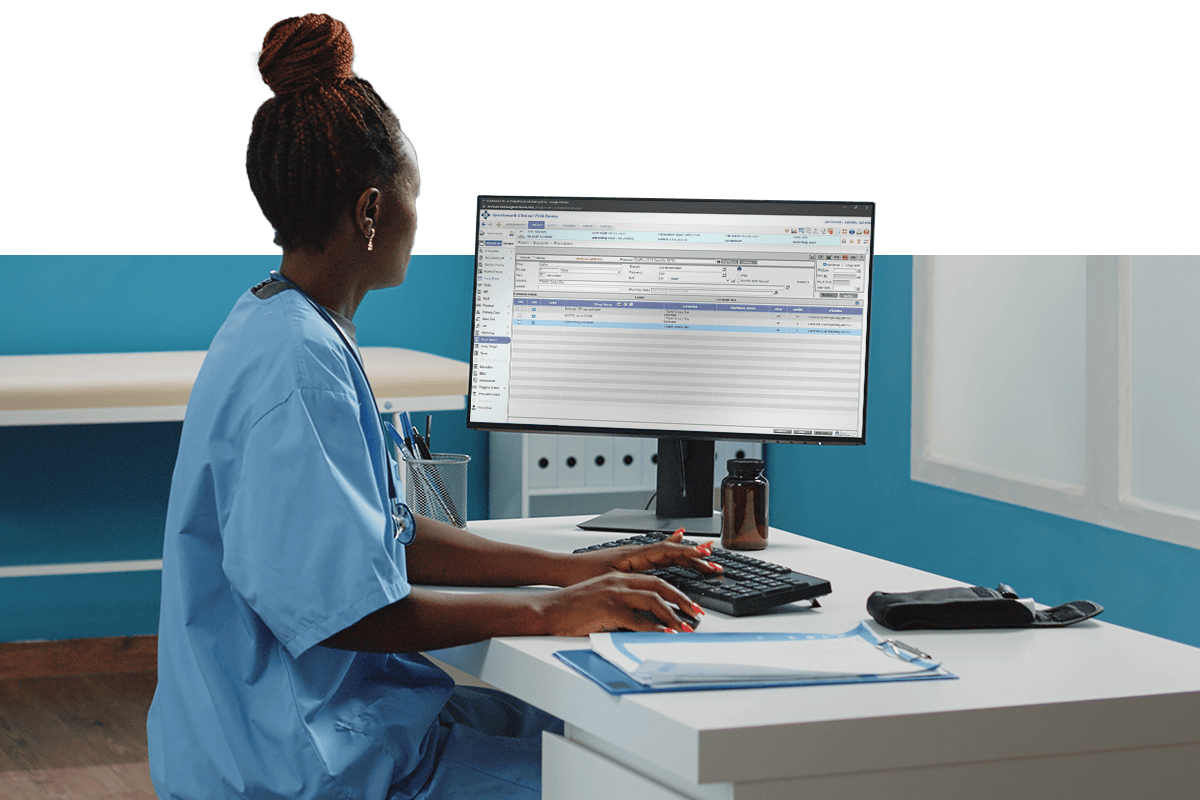Advantages of Healthcare in the Cloud
Computers and applications have evolved to make our lives easier, information more accessible, and services better. The healthcare industry has made enormous strides and produced incredible results with the help of purpose-built software solutions. But why the cloud?
Increased accessibility:
When data and services live online, they can be accessed from any computer, smartphone, or tablet — and this applies to both providers and patients. Thanks to cloud providers’ dedication to database management and cybersecurity, providers can access electronic medical records and patient files from any secure device anywhere. This means providers can do more in more places, within or outside of a clinical setting or traditional office hours. Likewise, patients with limited access to healthcare professionals or without reliable transportation can receive healthcare services and access their medical information without additional office visits — so long as their provider has the technology available.
Interoperability between platforms:
Many providers use several online tools in their digital health ecosystems, but these tools don’t always “play well together.” Using an interoperable cloud-based platform can allow more than one digital system to connect seamlessly via an application programming interface, or API. APIs can connect multiple data streams to consolidate data storage and streamline reporting processes. With centralized data, providers can see the full picture of a patient’s health without toggling back and forth from platform to platform, allowing for more personalized care and better patient experiences overall.
Analytics and machine learning:
Artificial intelligence (AI) is another exciting development in the world of healthcare cloud computing. By consolidating data sets and analytics on trends and changes, artificial intelligence can gradually learn to identify and even predict issues and events to improve your practice’s workflows. Once bottlenecks and trends are identified, automation can help improve the systems in place without further burdening care teams and administrative staff. Standardizing and automating processes — both within patient care plans and administrative systems — can inform decision making and boost productivity for everyone involved.
On the patient-facing side, artificial intelligence is revolutionizing the way patients interact with their care at home. AI can continuously learn about patients and adjust analytical algorithms to flag abnormalities in biometric data, alert care teams, and recommend resources. With increased emphasis on remote patient monitoring, proactive health plans, and preventive strategies, AI is a massively helpful tool that can help providers better understand changes in symptoms and their causes, and communicate with patients in a timely manner.
Reduced technology costs:
Most healthcare systems and some private practices have IT staff on their team to help manage their technological networks and issues. These IT staff are technology generalists who can help fix any technological device or account, from phone systems, to printers, to email accounts. However, building and maintaining a secure, HIPAA-compliant on-premises database requires a completely different set of skills. By utilizing cloud technology, businesses let database management service providers code and maintain their online information systems in dedicated data centers for a lower cost.



